We’re meeting more pilgrims in this region. Many of those we’ve spoken to have started in Canterbury but are walking sections as their schedules allow. I’m glad I’m cycling because a lot of this pilgrim trail is monotonous and while that does enable deep thought, it’s gruelling on 30 degree days with no shade.
The history of these towns and villages we pass through is incredible. Yet it’s the deaths in global conflicts that are giving me pause for thought. I’m on a pilgrimage trail and perhaps this is not how you’d expect a pilgrim to react. Maybe I’ll upset a reader or two by expressing my opinions but these blogs are about recording how I react and what I feel when under stress.
Women have little recognition in the history I see commemorated in these plaques we pass. Their job is to adorn them with flowers and grieve. Men-myths like the false chivalry and manic bravery of fighter pilots and the great aces – tens of kills means tens of mothers children killed. Pro Patria isn’t sacrifice but state sanctioned murder. And the dead pilots along with mothers, their sisters, their wives get little or no recognition. The survivors are initially lauded and then listed on plaques when they die. ‘Thank you for your service’ only applies to survivors, maimed, traumatised or otherwise. Spare a thought for the civilians killed as (fisherman term) ‘by-catch’. Yes, we can’t face the maimings and deaths so we give them new names or justify them as ‘collateral damage’. And while on this topic, in this region people have been slaughtering each other for millennia. Where are those plaques? And let’s face it, many of these missing names are kids, dead generally (sic) due to incompetent leadership. It’s not a coincidence that so many livestock (walking deadstock?) farmers reach high rank in armies. Want genocide? Ask a chicken-farmer.
But you are here to read about cyclegrims pedalling to Rome. So let’s start with a metaphorical nod to the Italian fanaticism for football by saying today was a day of two halves. And noting that the playing field was never really level.
The first half was grim. The roads took the early lead and our defence was weakened by being aged, overweight and unfit. But we held on and at the half, took a break by a church at the Parma-Tuscany border. In the second half, we played downhill, the rain held off and the wind was not a distraction. We simply rolled and rolled until the final whistle in Aulla. An away draw qualified us to advance towards the final in Rome.
The climb from Bardone to get to that break at the Passo Della Cisa was about 1300 metres. There were three peaks to reach and valleys to drop into. I was right to be scared of this section because the downhills interrupted the pedal rhythm, the muscles went cold and it was quite brutal with 130 kg on the wheels. We saw extensive fire damage, hunters with bandoliers of bullets, layers of purple mountains, many green woodpeckers and too many speeding motorcycles. We had amazing an local lunch sitting in Berceto square – local potato pizza for local people, local sheep’s cheese for the local people, slice of local hazelnut cake for the local people; carbs and more carbs. But this wasn’t Royston Vasey though we were from a league of gentlemen. That lunch was found cruelly a 100 metres below us. Typical of the hardest day so far.
Another observation is that history of the plains is masked. The plains are the riverine area between the fairytale castellated Aosta valley and the Cisa Pass. History there is hidden under a tapestry of super-industrial-agricultural rice, cornfields and more river sediment than you can probably imagine. Perhaps the flooding and blooding is best obscured to all but the most dedicated pilgrim.
And finally, we ended up in BedeBike in Aulla. Clothes got washed, bikes got serviced and we got rested. And the calzone I got nearby was simply enormous and put me to sleep. Search for BedeBike (nothing to do with the Venerable Bede and other pilgrim routes, it’s bed and bike). Five stars to BedeBike.
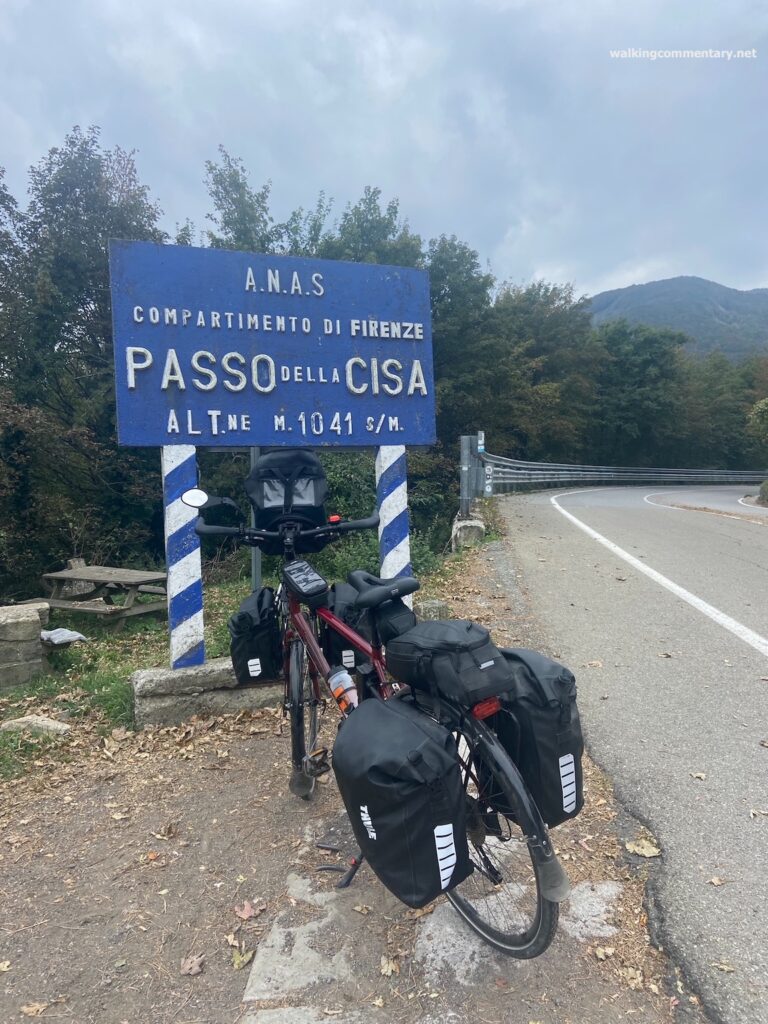
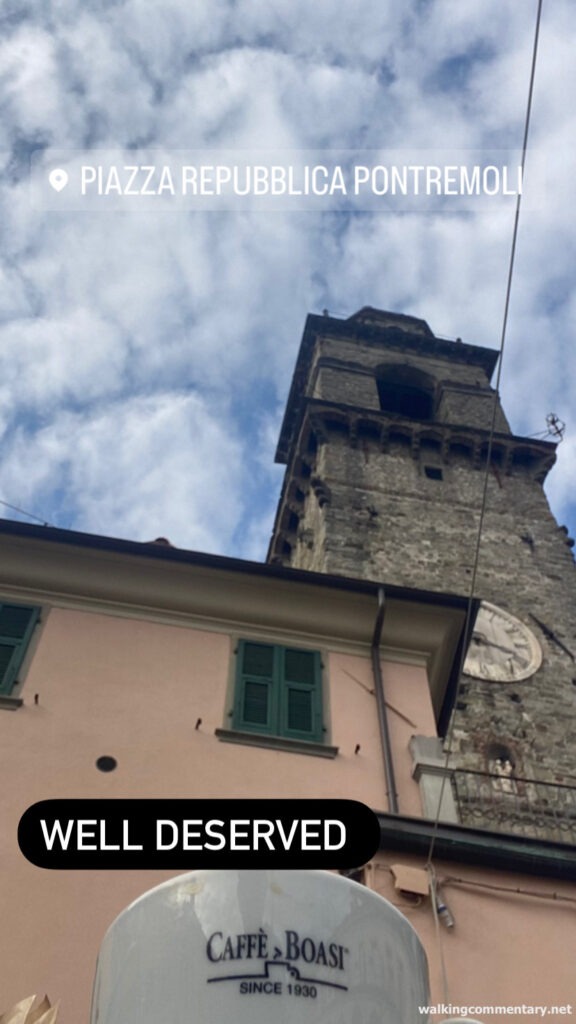
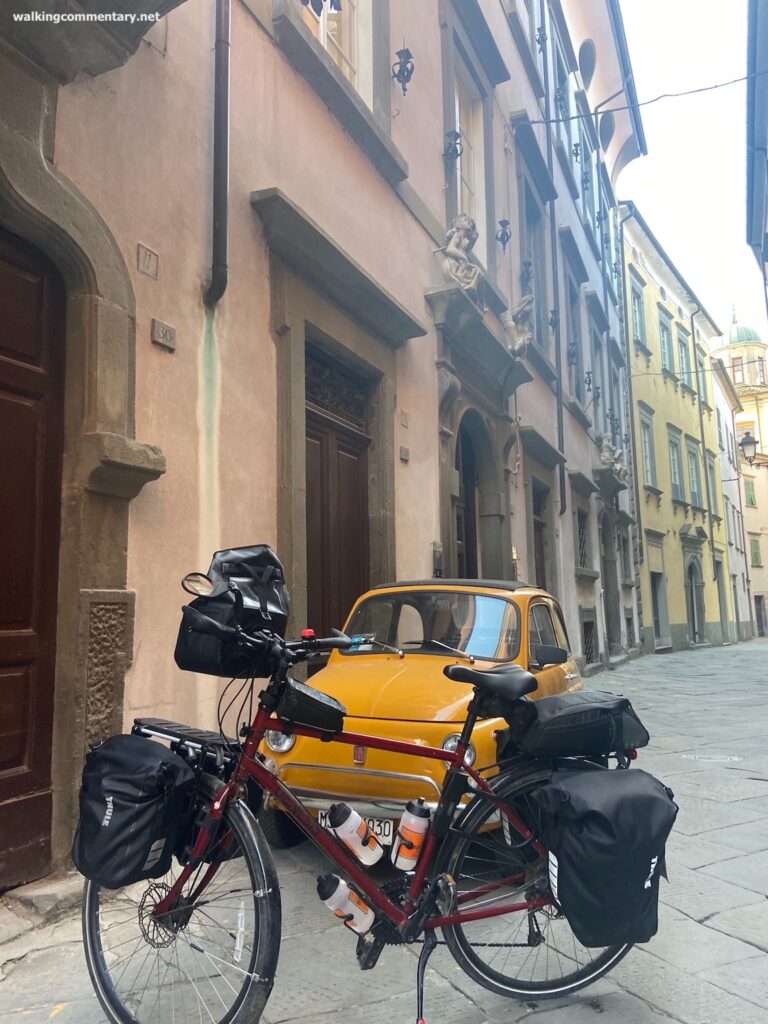
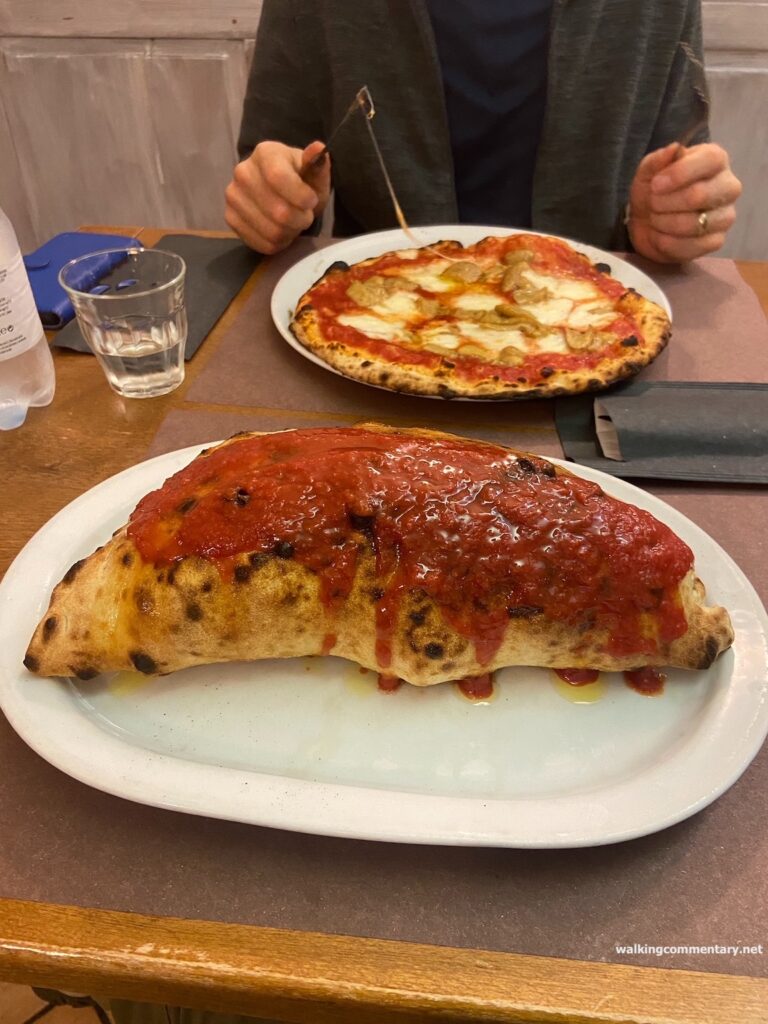
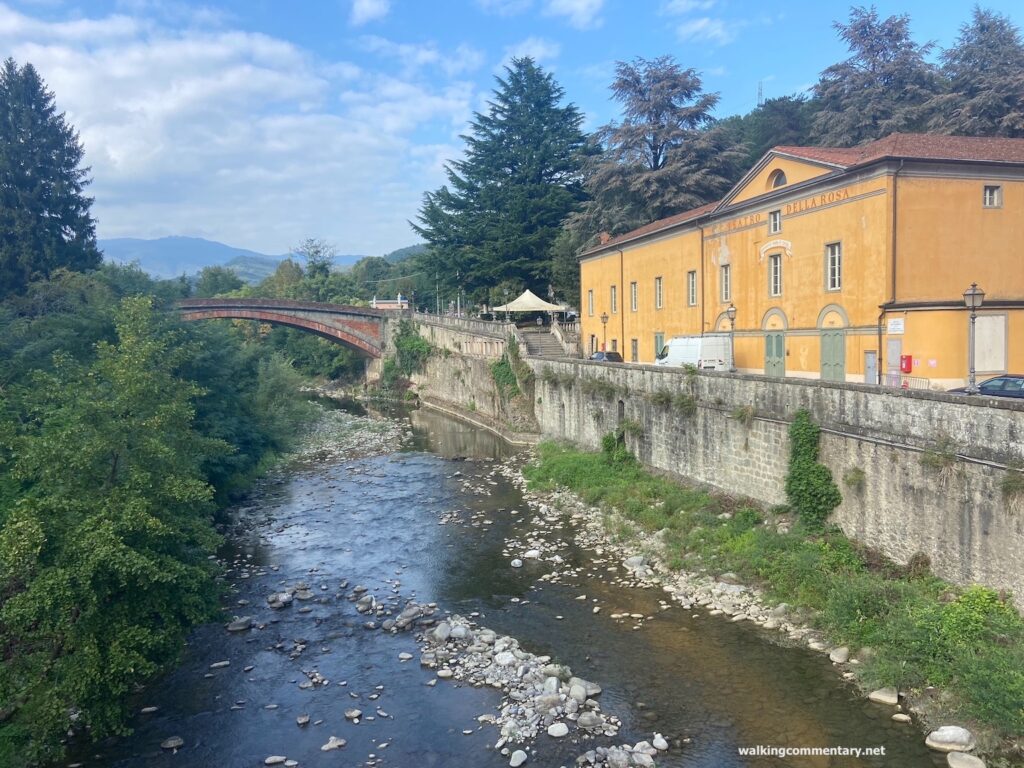

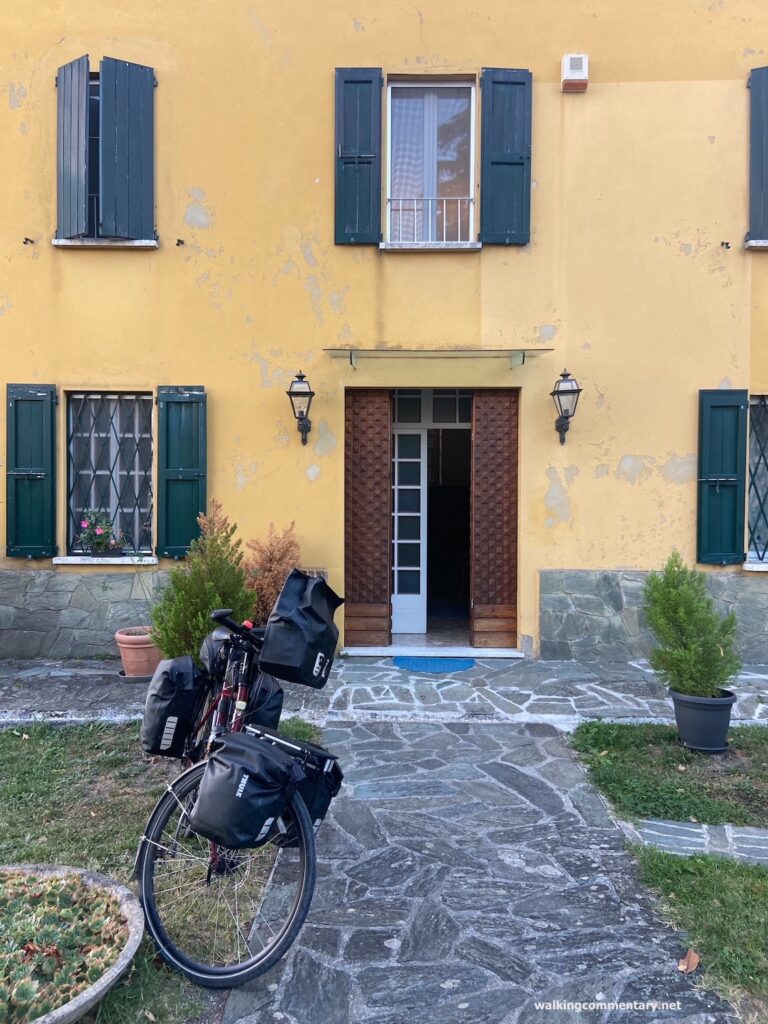
Leave a Reply